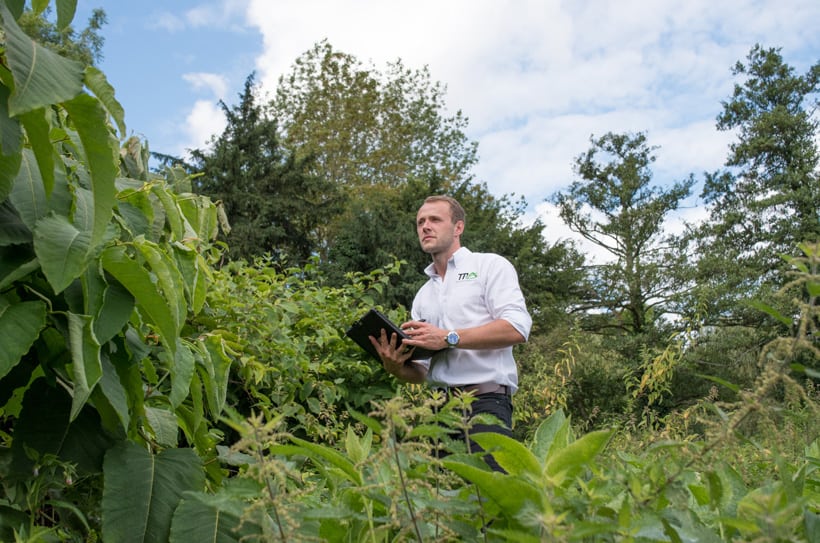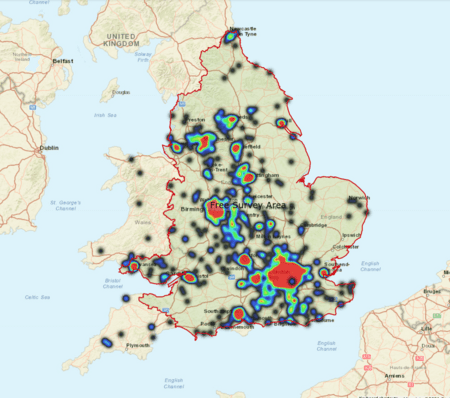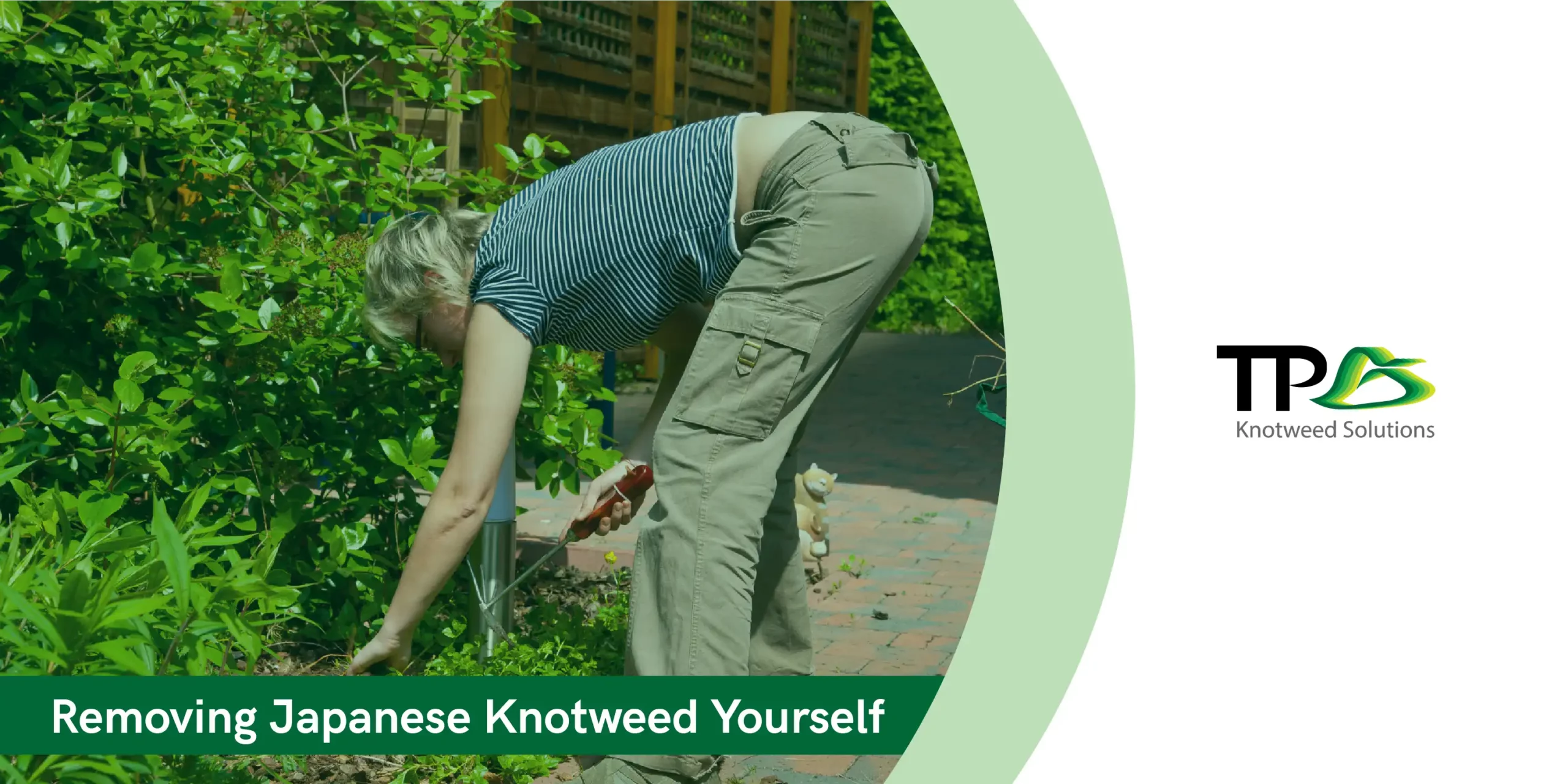For most of us, the spring brings to mind lovely Daffodils and Tulips. For others, a less pleasant plant occupies their thoughts of spring – the Japanese knotweed.
With the unfortunate distinction as the UK most invasive plant, Japanese knotweed can be a headache for homeowners. The good news is it doesn’t have to be.
The first step to dealing with knotweed is knowing if your property has it. In this article, we will go over the top 10 hotspots for Japanese knotweed in the UK, and tips on dealing with it if you do find it.
Japanese knotweed Reduces Property Value by 10%
Japanese knotweed starts to show with the first spring growth in March or April. Starting out as purple or red asparagus-shaped shoots, it can quickly grow to three meters tall by mid-summer if not dealt with.
knotweed is more than just an annoyance. The presence of Japanese knotweed can reduce a property’s value by 10% upwards.
Buyers just don’t want to buy a home with Japanese knotweed in the driveways, patios, drains, and in the walls of the home. This bamboo-like plant can even push through concrete, bricks, and mortar – damaging the stability of structures.
Is It Possible to Sell or Buy a Property with Japanese knotweed?
If you are looking to buy or sell a home and you know knotweed is on the property, all is not lost. You’ll simply need to follow a few additional steps in order for the sale to happen.
You will likely need a professional treatment plan with an Insurance-Backed Guarantee to make mortgage lenders happy.
A shocking 97% of lenders will not provide a mortgage for a residential property with Japanese knotweed. Of that 97%, 39% said they wouldn’t lend in any situation and 38% said that they might be willing in some situations if specific conditions are met.
Since the market is still reeling from COVID-19 and all of the lockdowns, it can be tempting to cut corners to make the sale happen. Ignore the temptation to get things done fast. Not dealing with Japanese knotweed the right way can slow down, and even stop, the sale.
Not dealing with knotweed could void any building damage claims you submit to your homeowner’s insurance. Failure to control knotweed could also open you up to liability claims from neighboring properties.
Finding knotweed isn’t the end for homeowners. You can restore your properties value. The first step is to know if you live in a hotspot.
Top 10 Hotspots For Japanese knotweed In 2021
1. Bolton, Greater Manchester
The town of Bolton, Greater Manchester has ranked as the number one hotspot for Japanese knotweed this year, coming in at a reported 621 infestations within a 4km radius.
2. Bristol
Next, Bristol came in at the number two spot this year. Bristol has 465 infestations of Japanese Knotweed within a 4km radius.
3. St Helens, Merseyside
In spot number three for Japanese knotweed infestations in 2021 is St Helens, Merseyside, with 440 infestations within a 4km radius.
4. Cardiff, South Wales
Cardiff, South Wales is hotspot number four this year. Cardiff, South Wales has 419 infestations of Japanese knotweed within a 4km radius.
5. Blackburn, Lancashire
The town of Blackburn, Lancashire has ranked as the fifth hotspot for Japanese knotweed this year. Blackburn, Lancashire has 406 infestations within a 4km radius.
6. Llanelli, South Wales
In spot number six for Japanese knotweed infestations in 2021 is Llanelli, South Wales, with 382 infestations within a 4km radius.
7. Swansea, South Wales
Swansea, South Wales is hotspot number seven this year. Swansea, South Wales has 330 Japanese Knotweed infestations within a 4km radius.
8. Rotherham, South Yorkshire
Rotherham, South Yorkshire came in at the number eight spot this year. Rotherham, South Yorkshire has 320 infestations within a 4km radius.
9. Shepherd’s Bush, West London
The town of Shepherd’s Bush, West London has ranked as the ninth hotspot for Japanese knotweed this year, coming in at a reported 230 infestations within a 4km radius
10. Nottingham
Lastly, Nottingham was ranked as hotspot number ten. Nottingham has 228 Japanese Knotweed infestations within a 4km radius.
Final Tips for Dealing with Japanese knotweed On a Property

Here are some final tips to help if you want to buy or sell a property and suspect Japanese knotweed is present.
- Check and double check. Do a very thorough check of the property. Go over it a number of times. Make sure you know exactly where the property boundary is, so you can check every inch. To avoid any issues down the line, we highly recommend instructing a Japanese knotweed survey from a Japanese knotweed specialist such as TP knotweed Solutions. This will cost in the region of £300.00 + VAT and will provide total peace of mind.
- Even if you don’t suspect knotweed is present, you still need to do this step. This will be the biggest purchase you will ever make – it’s important to take the time to make sure it’s a good one.
- Complete a Property Information Form (TA6). You can be sued for misrepresentation if you try to hide the Japanese knotweed and could be on the hook for compensation to the buyers.
- Don’t panic. knotweed doesn’t have to ruin the sale of a home. While the sale will be more difficult, you can make it work.
- Remember, you need a proper remediation strategy in place. Most mortgage lenders who will provide mortgages for knotweed infested properties will require a strong remediation strategy in place. You will need one with warranties and insurance to prove to them that things are under control.
- Don’t go at it alone. In this case, professional help is recommended. Battling knotweed is a long and intensive process.
If in doubt, reach out to us to find out more about our expert Japanese knotweed identification and removal services, or to request a survey of your property. Call us on 0800 389 1911 or get in touch online for direct advice from one of our friendly, professional Japanese knotweed specialists.




